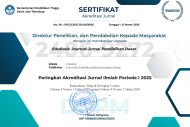Exploring Traditional Games to Stimulate Foundational Phases in Strengthening the Transition from ECE to Primary School: Teachers’ Creative Practices
Abstract
This qualitative case study explores the role of traditional games in strengthening six foundational competencies in early childhood education (ECE) during the transition from ECE to primary school in Pinrang, Indonesia. The study utilized interviews, direct observations, document reviews, and video transcripts to investigate how culturally embedded play supports holistic child development and school readiness. The research reveals that traditional games effectively stimulate religious and moral values, social and language skills, emotional maturity, cognitive readiness, motor skills, and positive attitudes toward learning. Teachers demonstrate significant creativity in adapting these games pedagogically to accommodate diverse learner needs, while institutional collaboration between ECE and primary schools fosters continuity and shared understanding. Moreover, digital documentation enhances formative assessment and parental engagement. Traditional games also serve as vital cultural tools, preserving indigenous knowledge and instilling community pride among children. The findings emphasize the importance of integrating culturally relevant play in early education policies and practices to support inclusive, engaging, and meaningful transitions for young learners. Despite the positive outcomes, the study identifies limitations related to the incomplete observation of the full range of traditional games and the need for deeper investigation into primary school and inclusive settings. This research contributes to the growing evidence on culturally responsive play-based pedagogy and suggests directions for future studies focusing on scalability, sustainability, and inclusivity. The study advocates for strategically incorporating traditional games to enhance educational equity and holistic development in global ECE transitions.
Keywords
Full Text:
PDFReferences
Adi, B. S., Irianto, D. P., & Sukarmin, Y. (2022). Teachers’ perspectives in motor learning with traditional game approach for early childhood. Cakrawala Pendidikan, 41(1), 1–11.
Alcaraz-Muñoz, V., Izquierdo, M. I. C., García, G. M. G., Roque, J. I. A., & Lucas, J. L. Y. (2020). Joy in movement: Traditional sporting games and emotional experience in elementary physical education. Frontiers in Psychology, 11, 588640.
Alotaibi, M. S. (2024). Game-based learning in early childhood education: A systematic review and meta-analysis. Frontiers in Psychology, 15, 1307881.
Azlan, A., Ismail, N., Fauzi, N. F. M., & Talib, R. A. (2021). Playing traditional games vs. Free-play during physical education lesson to improve physical activity: A comparison study. Pedagogy of Physical Culture and Sports, 25(3), 178–187.
Demarie, D., & Bugos, J. (2023). Creative arts, physical activity, and children’s play in early childhood. Theory Into Practice, 62(2), 103–106.
Fernández-Oliveras, A., Espigares-Gámez, M. J., & Oliveras, M. L. (2021). Implementation of a playful microproject based on traditional games for working on mathematical and scientific content. Education Sciences, 11(10), 624.
Fitri, M., Nur, H. A., & Putri, W. (2020). The commemoration of Independence Day: Recalling Indonesian traditional games. Frontiers in Psychology, 11, 587196.
Gultom, S., Baharuddin, B., Ampera, D., Endriani, D., Jahidin, I., & Tanjung, S. (2022). Traditional games in cultural literacy to build the character of elementary school students during the COVID-19 pandemic. NeuroQuantology, 20(5), 704–712.
Hidayati, N. N. (2020). Indonesian traditional games: A way to implant character education on children and preserve Indonesian local wisdom. Istawa : Jurnal Pendidikan Islam, 5(1), 81–101.
Huang, L., Leung, S. K. Y., Li, J. W., & Wu, Z. (2024). How does comprehensive art education facilitate children’s creativity? A mixed-methods study in China. Early Education and Development, 36(2), 460–476.
Hussain, B., & Cheong, J. P. G. (2022). Improving gross motor skills of children through traditional games skills practiced along the contextual interference continuum. Frontiers in Psychology, 13, 986403.
Ilyas, S. N., & Lismayani, A. (2023). Implementation of differentiated learning at TK Islam Plus E-School. EduLine: Journal of Education and Learning Innovation, 3(4), 586–591.
Jannah, M. M., & Harun, H. (2023). Kurikulum Merdeka: Persepsi guru pendidikan anak usia dini. Jurnal Obsesi: Jurnal Pendidikan Anak Usia Dini, 7(1), 197–210.
Kacar, D., & Ayaz-Alkaya, S. (2022). The effect of traditional children’s games on internet addiction, social skills and stress level. Archives of Psychiatric Nursing, 40, 50–55.
Kogoya, T., Mutohir, C., Pramono, M., Kristiyanto, A., Putro, B. N., Ali, S. K. S., Karakauki, M., Sukarmin, Y., Sutapa, P., A. A., Sonjaya, A. R., & Trisnadi, R. A. (2023). Developing the value of peace in sport, health, and physical education lecture through traditional games. International Journal of Human Movement and Sports Sciences, 11(2), 268–275.
Lipscomb, S. T., Chandler, K. D., Abshire, C., Jaramillo, J., & Kothari, B. (2021). Early childhood teachers’ self-efficacy and professional support predict work engagement. Early Childhood Education Journal, 50(4), 675–685.
Luchoro-Parrilla, R., Lavega-Burgués, P., Damian-Silva, S., Prat, Q., Sáez de Ocáriz, U., Ormo-Ribes, E., & Pic, M. (2021). Traditional games as cultural heritage: The case of Canary Islands (Spain) from an ethnomotor perspective. Frontiers in Psychology, 12, 586238.
Mardliyah, S., Yulianingsih, W., & Putri, L. S. R. (2021). Sekolah Keluarga: Menciptakan lingkungan sosial untuk membangun empati dan kreativitas anak usia dini. Jurnal Obsesi: Jurnal Pendidikan Anak Usia Dini, 5(1), 576–590.
Moir, T., & Johnson, J. (2021). Ensuring quality transitions from early years’ establishments into primary schools: Putting research into practice. Frontiers in Psychology, 12, 499917.
Ngaisah, N. C., Munawarah, M., & Aulia, R. (2023). Perkembangan pembelajaran berdiferensiasi dalam kurikulum merdeka pada pendidikan anak usia dini. Bunayya: Jurnal Pendidikan Anak, 9(1), 1–25.
Nurwahidah, N., Maryati, S., Nurlaela, W., & Cahyana, C. (2021). Permainan tradisional sebagai sarana mengembangkan kemampuan fisik motorik anak usia dini. PAUD Lectura: Jurnal Pendidikan Anak Usia Dini, 4(2), 49–61.
O’Keeffe, C., & McNally, S. (2021). ‘Uncharted territory’: Teachers’ perspectives on play in early childhood classrooms in Ireland during the pandemic. European Early Childhood Education Research Journal, 29(1), 79–95.
Ospankulov, Y., Nurgaliyeva, S., Zhumabayeva, A., Zhunusbekova, A., Tolegenuly, N., Kozhamkulova, N., & Zhalel, A. (2023). Examining the relationships between primary school students’ participation in sports and technology addictions. International Journal of Education in Mathematics, Science and Technology, 11(3), 804–819.
Özcan, S., & Sakız, H. (2025). Improving social-emotional skills for inclusion through traditional child games. Children and Youth Services Review, 173, 108299.
Parker, R., Thomsen, B. S., & Berry, A. (2022). Learning through play at school – A framework for policy and practice. Frontiers in Education, 7, 751801.
Prameswari, T., & Lestariningrum, A. (2020). STEAM based learning strategies by playing Loose Parts for the achievement of 4C skills in children 4-5 years. Efektor, 7(1), 24–34.
Ramadhani, P. R., & Fauziah, P. Y. (2020). Hubungan sebaya dan permainan tradisional pada keterampilan sosial dan emosional anak usia dini. Jurnal Obsesi: Jurnal Pendidikan Anak Usia Dini, 4(2), 1011–1020.
Rianto, H., & Yuliananingsih, Y. (2021). Menggali nilai-nilai karakter dalam permainan tradisional. Edukasi: Jurnal Pendidikan, 19(1), 120–134.
Saearani, M. F. T., Sampurno, M. B. T., Chan, A. H., Alfarisi, S., Augustine, C., & Wong, W. H. Y. C. (2024). Assessing teachers’ acceptance of traditional games-based creative movement for increasing preschool children’s imagination. Retos, 60, 1025–1035.
Suryadi, D., Nasrulloh, A., Yanti, N., Ramli, R., Fauzan, L. A., Kushartanti, B. M. W., Sumaryanti, S., Suhartini, B., Budayati, E. S., Arovah, N. I., Mashud, M., Suganda, M. A., Sumaryanto, S., Sutapa, P., Abdullah, N. M., & Fauziah, E. (2024). Stimulation of motor skills through game models in early childhood and elementary school students: Systematic review in Indonesia. Retos, 51, 1255–1261.
Temel, A., Kangalgil, M., & Çali, O. (2024). Teachers’ views on the role of traditional children’s games in education. Journal of Education and Recreation Patterns, 5(1), 52–65.
VanLone, J., Shearer, L., Luzenski, M., Amarante, E., Chlebowski, S., & Boyatzis, C. (2024). Rooted in nature: Pre-service teachers’ development of nature-based pedagogical insights through a forest school field experience. Journal of Adventure Education and Outdoor Learning, 2024, 2152.
Wong, T. C.-Y., Leung, S. K.-Y., & Liang, L. (2025). Exploring Hong Kong student teachers’ perspectives on children’s play and learning. Journal of Childhood, Education and Society, 6(1), 38–54.
Xie, J., Wang, M., & Hooshyar, D. (2021). Student, parent, and teacher perceptions towards digital educational games: How they differ and influence each other. Knowledge Management and E-Learning, 13(2), 142–160.
DOI: https://doi.org/10.17509/ebj.v7i2.83506
Refbacks
- There are currently no refbacks.
Copyright (c) 2025 Universitas Pendidikan Indonesia
This work is licensed under a Creative Commons Attribution 4.0 International License.
This journal is indexed by




.png)




.png)
1.png)


1.png)

.png)